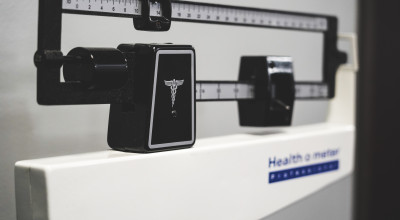Why Alcohol Actually Hurts Stress Management
June 23rd, 2020
People drink. We have about one hundred different reasons to want to. We drink to be social, to show off, to decompress after work, and to fit in. No matter the exact purpose, alcohol is known for being the go-to means to finding relaxation and letting loose. Drinking has become a casual activity that many will engage in at the end of the workweek, or sometimes everyday as a reward for their hard work.
Drinking provides short term stress relief and solace from the hardships of work. Most are familiar with the dangers of alcoholism and becoming addicted, but how does it affect stress management in the long run? For being known as the most popular relief option after a long day, you’d be surprised how bad it can get.
The Science of Depressants
Alcohol is a depressant. Depressants slow down the mind’s neurotransmitter response systems and makes thoughts, feelings, and reactions feel slower and more relaxed. As your nervous system simultaneously slows down, so does your production of chemicals necessary for feelings like stress and adrenaline. For creatures who spend a lot of time stressed from work, school, or for other reasons, this equates to pleasure and less worries. At least for the short-term, stress and anxiety goes away!
In the long-term, the opposite becomes true. When our brain experiences stress and other psychological abnormalities, it releases a hormone called cortisol to bring us back to a “normal” state. When we drink regularly, we promote long term stress and other problems in two different ways.
Firstly, our body requires more cortisol production to reach normality again. As addiction sets in and requires more drinking to feel the effects of alcohol, as reactive behavior becomes increasingly regular, more cortisol becomes necessary to get the mind back to normal. The physiological point of normalcy shifts to a higher position that becomes harder to reach (called “allostasis”). This equates to stress becoming more frequent and severe on a regular basis as your brain struggles to produce the amount of cortisol and other hormones it now requires.
Secondly, cortisol is linked with unpleasant feelings and sensations in our brains. It’s doing what it has to in order to help our mind reach sobriety, but that’s not necessarily a pleasant process. Because cortisol interacts so much with our brain’s pleasure and reward system, it takes more alcohol to reach the ideal pleasure point. Regular use leads to heavier drinking, and in tandem, both of these factors will feed into addiction. Increased cortisol production is also linked with memory, learning, habit-based learning (regular drinking), and psychiatric disorders.
Alternatives to Drinking
So it’s been a long day at work and it was more stressful than usual. A good beer or a nice glass of wine sounds delicious right now, especially to help take the edge off. But you’re also painfully aware that your drinking habits haven’t been the best lately and you don’t want to rely on alcohol for feeling good after work. What is there to do to help decompress instead?
As a note before we touch on alternatives to drinking alcohol, please note this is more oriented towards those not facing addiction or for those in recovery already. If you are facing untreated alcoholism, please reach out to professional specialists or organizations such as AA or the NIAAA. Alcoholism is a disease and can lead to destructive or dangerous consequences to yourself or your loved ones when left untreated.
Alcohol becomes addictive because alongside the short term stress relief benefits, it stimulates our brains very quickly. When trying to find something to get your mind off of alcohol craving, highly stimulating, healthy activities are the way to go.
Try physical activities
If you’re not naturally prone to the desire to engage in physical activity, this one might be challenging. However true this is, we encourage you to try as hard as you can to build a habit! Physical activity of any kind might be the most effective way to counter urges to engage in unhealthy and addictive habits like drinking. It might add to your stress while you are getting used to a challenging new practice, but if you can stick to it, you’ll quickly find just how much your brain becomes stimulated after every session.
We’ve highlighted in a lot of our past blogs what specifically physical activity does for your brain, so we won’t review it in detail here. If you’ve not had the chance to learn about it yet, you won’t regret finding out the how of why!
Find a mindfulness technique that works for you
We’re not doing mindfulness techniques a favor by grouping up all the ways to practice it, but writing about them all would be quite a challenge. Mindfulness is about focusing on the current moment you’re in and acknowledging your feelings, concerns, and needs as a therapeutic technique. Like physical activity, it takes practice but can help you find your center and help let cravings pass through you.
Try out breathing exercises, meditation, one-minute sensory exercises, anything that you find is working best for you! But always make sure you keep your objective of de-stressing in mind.
Find your own technique
Without sounding like a lazy write-off, finding what decompresses you takes likely multiple activities and lots of time. We couldn’t possibly encompass all of the different ways people find out how they like to relax. Use your resources available to you to try out new things! Use the internet (like you are now), books, magazines, or anything else. As mental health and addiction are becoming more accepted to talk about, so is the availability of both scholarly and journalistic resources that have their own answer to the approach of how to subvert alcohol cravings and reduce long-term stress. Any of these resources might yield “your” answer-- what matters is you take the time to try and find it!


